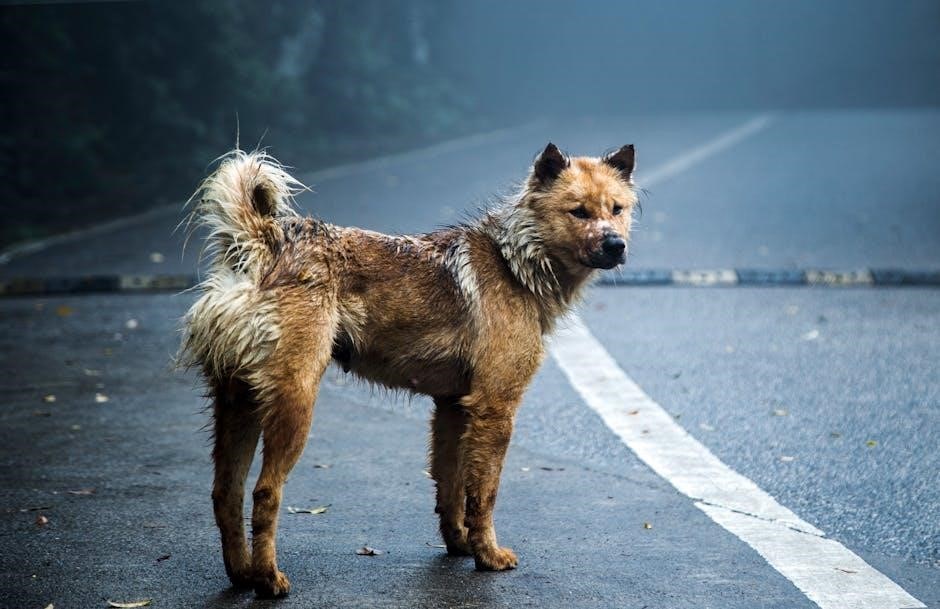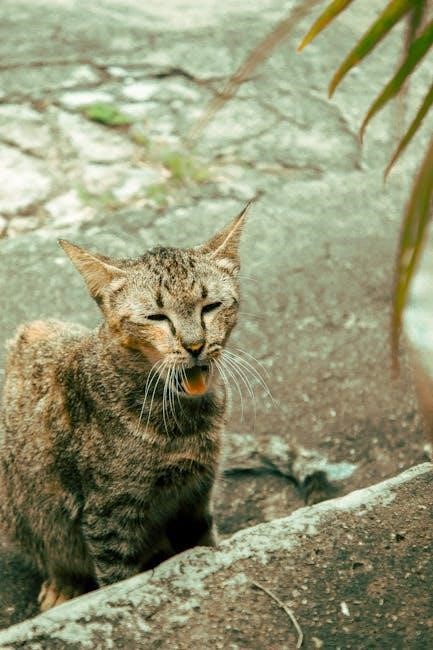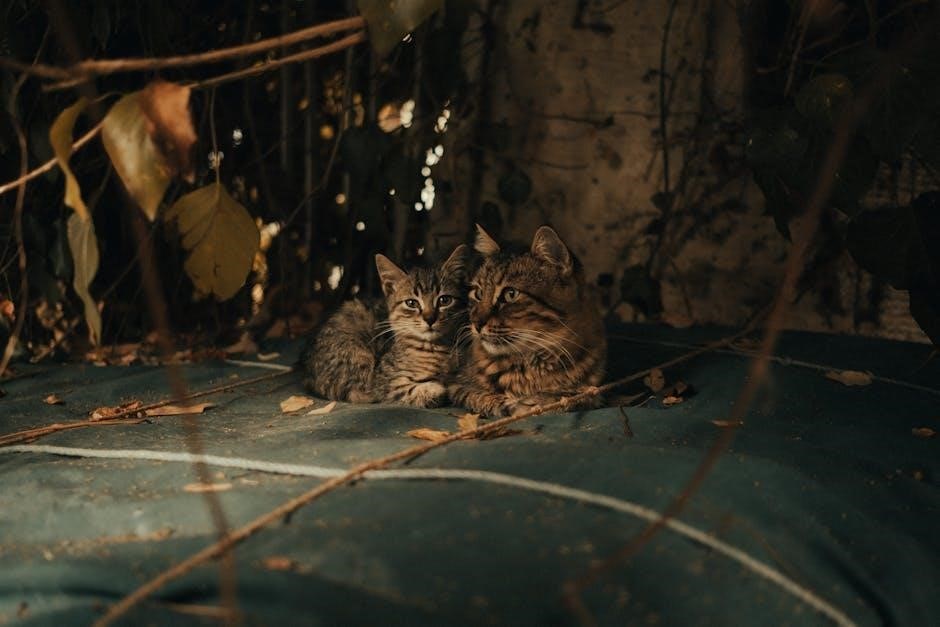Wild by Cheryl Strayed is a memoir recounting her 1,100-mile hike along the Pacific Crest Trail. The book explores themes of grief, self-discovery, and healing.

1.1 Overview of the Book
Wild is a memoir by Cheryl Strayed, detailing her transformative 1,100-mile hike along the Pacific Crest Trail. At 26, Cheryl embarked on this journey after losing her mother to cancer, which led to her family’s disintegration and her own downward spiral. The book blends personal narrative with reflections on grief, self-discovery, and redemption. Strayed’s story captures her physical and emotional challenges, offering a raw, honest account of her quest for healing. Part adventure, part introspection, Wild has resonated with readers worldwide, becoming a bestseller and inspiring a film adaptation. It explores themes of resilience and the power of nature.
1.2 Cheryl Strayed’s Background
Cheryl Strayed is an American author and podcaster, best known for her memoir Wild. Born in 1968, she experienced a tumultuous early life. At 22, her mother died suddenly of cancer, leading to her family’s fragmentation. Strayed’s life spiraled, marked by heroin use, infidelity, and divorce. At 26, she embarked on a transformative 1,100-mile hike along the Pacific Crest Trail, which became the basis of her memoir. Her writing often explores themes of grief, resilience, and self-discovery. Strayed’s raw honesty and compelling storytelling have earned her widespread acclaim, solidifying her place as a prominent contemporary author.
1.3 The Pacific Crest Trail (PCT) as a Central Theme
The Pacific Crest Trail (PCT) serves as both a literal and symbolic backdrop in Wild. Spanning 1,100 miles from California to Washington, the trail represents Cheryl Strayed’s journey of self-discovery and healing. The PCT’s vast, untouched landscapes mirror her inner struggles and growth, while its challenges—such as rugged terrain and isolation—test her resilience. Through her experiences on the trail, Strayed finds solace in nature, transforming the PCT into a metaphor for her path toward redemption and inner peace. The trail becomes a character in itself, shaping her narrative and spiritual rebirth.
Key Themes in “Wild”
Wild explores themes of grief, self-discovery, and redemption, weaving personal loss with a journey of healing and transformation through nature and solitude.
2.1 Grief and Loss
Cheryl Strayed’s memoir Wild profoundly explores her struggle with grief after her mother’s sudden death from cancer. At just 22, Cheryl felt her world unravel, leading to the dissolution of her family and marriage. Her mother’s loss sent her into a spiral of self-destruction, marked by promiscuity and heroin use. The book vividly captures her emotional turmoil and the void left by her mother’s absence. The Pacific Crest Trail becomes a symbolic path to process her pain, showing how grief can both devastate and transform, ultimately leading to self-reflection and healing. Strayed’s raw honesty makes her journey deeply relatable.
2.2 Self-Discovery and Personal Growth
In Wild, Cheryl Strayed’s 1,100-mile journey along the Pacific Crest Trail becomes a metaphor for self-discovery. Through the challenges of the hike, she confronts her inner struggles, including feelings of guilt, regret, and disorientation following her mother’s death. The solitude and physical demands of the trail force her to reflect on her past and redefine her identity. Strayed emerges transformed, gaining clarity about her values and purpose. Her story highlights how adversity can foster resilience and personal growth, offering a powerful narrative of self-reinvention and the pursuit of a meaningful life. The memoir is a testament to the human capacity for transformation.
2.3 Redemption and Healing

Cheryl Strayed’s journey in Wild is not only a physical trek but also a path to redemption and emotional healing. Haunted by past mistakes and her mother’s death, Strayed seeks forgiveness and inner peace. The arduous hike forces her to confront her guilt and regret, allowing her to release the burden of her past. Through moments of vulnerability and reflection, she discovers the power of self-forgiveness and learns to reconcile her losses. The trail becomes a sanctuary where she heals and rebuilds her sense of self, transforming her pain into strength and finding redemption in the process. Her story is a testament to the human spirit’s capacity to heal.

The Journey on the Pacific Crest Trail

The Pacific Crest Trail serves as the backdrop for Cheryl Strayed’s transformative journey, where she faces physical and emotional challenges, finding solace in nature’s vastness and beauty.
3.1 Cheryl’s Motivation for the Hike
Cheryl Strayed embarked on her Pacific Crest Trail journey driven by profound grief and a quest for self-redemption. Following her mother’s sudden death from cancer, her life unraveled—her family fragmented, and her marriage collapsed. Haunted by feelings of loss and regret, Cheryl sought solace in the challenging hike, hoping to heal and rediscover herself. The arduous journey symbolized her internal struggle to confront pain, let go of the past, and rebuild her sense of purpose. Her motivation stemmed from a deep need to reconnect with herself and find meaning in a life that had spiraled out of control.
3.2 Challenges Faced on the Trail

Cheryl Strayed faced immense challenges on the Pacific Crest Trail, including physical exhaustion, harsh weather, and isolation. Her heavy backpack, nicknamed “Monster,” weighed her down, and she often struggled with basic survival skills. Emotional turmoil, stemming from grief over her mother’s death and personal regret, compounded her difficulties. She encountered dangers like wildlife threats and unsettling interactions with strangers. Despite her determination, the journey tested her resilience, forcing her to confront both external obstacles and internal demons. These challenges became pivotal in her transformative journey toward healing and self-discovery.
3.4 The Role of Nature in Her Journey
Nature played a pivotal role in Cheryl Strayed’s transformative journey, offering both solace and challenge. The vast, untouched landscapes of the Pacific Crest Trail provided a backdrop for introspection and healing. Strayed found strength in the rhythm of the natural world, which contrasted with her inner turmoil. The trail’s beauty and brutality forced her to confront her limits, fostering resilience and self-reliance. Through her immersion in nature, she discovered a sense of awe and connection, which became a source of emotional renewal and personal growth. Nature was not just a setting but an active participant in her journey toward redemption.

Reception and Impact of “Wild”

Wild became a bestseller, resonating deeply with readers for its raw honesty and inspiring journey of self-discovery, leaving a lasting impact on contemporary memoir literature.
4.1 Literary and Critical Acclaim
Wild received widespread critical acclaim for its raw honesty and emotional depth. Reviewers praised Cheryl Strayed’s unflinching portrayal of grief and resilience. The memoir was hailed as a masterpiece of contemporary literature, earning Strayed numerous accolades. Critics noted her vivid storytelling and the universal themes of loss and redemption. The book’s success was further cemented by its inclusion on the New York Times bestseller list, solidifying its place as a modern classic in memoir writing.
4.2 Commercial Success and Bestseller Status
Wild achieved remarkable commercial success, becoming a #1 New York Times bestseller. Over 4 million copies have been sold worldwide. Its popularity soared, making it a staple in memoir literature. The book’s relatability and universal themes of resilience and transformation resonated with readers globally. It remained on bestseller lists for years, solidifying its status as a modern literary phenomenon. The memoir’s success also led to increased interest in the Pacific Crest Trail, inspiring many to embark on similar journeys. Its enduring popularity continues to drive sales across paperback, e-book, and audiobook formats.
4.3 Adaptation into Film and Other Media
Wild was adapted into a successful film in 2014, starring Reese Witherspoon as Cheryl Strayed. The movie received critical acclaim and earned Oscar nominations, further boosting the book’s popularity. The memoir has also been adapted into various formats, including audiobooks and e-books, expanding its reach. Its universal themes of resilience and self-discovery have made it a favorite for book clubs and discussions. The book’s success has also inspired countless readers to explore outdoor adventures, turning it into a cultural phenomenon beyond traditional media.
Cheryl Strayed’s Writing Style
Cheryl Strayed’s writing is raw, honest, and deeply personal, blending vulnerability with resilience. Her prose captivates readers with emotional depth and a unique storytelling voice.
5.1 Narrative Technique and Storytelling
Cheryl Strayed’s narrative technique in Wild masterfully blends personal reflection with outdoor adventure. Her storytelling is both introspective and suspenseful, weaving memories of grief, self-discovery, and resilience into the rugged backdrop of the Pacific Crest Trail. Strayed’s vivid imagery and unflinching honesty create a deeply emotional connection with readers, while her ability to balance humor and heartache adds complexity to her journey. The memoir captivates through its raw authenticity, making the reader feel the weight of her struggles and the triumph of her healing. Strayed’s storytelling transforms a physical hike into a metaphorical journey of the soul.

5.2 Emotional Depth and Honesty
Cheryl Strayed’s writing in Wild is marked by profound emotional depth and unflinching honesty. She confronts her grief over her mother’s death, her unraveling marriage, and her self-destructive choices with raw vulnerability. Strayed’s willingness to expose her flaws and pain creates a powerful connection with readers, making her journey feel deeply personal and relatable. Her unvarnished portrayal of guilt, anger, and regret, alongside moments of tenderness and hope, underscores the memoir’s emotional resonance. This honesty not only underscores her resilience but also invites readers to reflect on their own struggles and capacity for healing.
5.3 Integration of Memoir and Adventure Elements
In Wild, Cheryl Strayed seamlessly blends the intimacy of memoir with the thrilling narrative of an adventure story. Her personal struggles, including grief and self-discovery, are intertwined with the challenges of hiking the Pacific Crest Trail. The book captures the physical demands of the journey—carrying a heavy backpack, navigating treacherous terrain, and encountering unpredictable weather—while also delving into the emotional and psychological transformation she undergoes. This fusion of introspective storytelling and outdoor adventure creates a compelling narrative that resonates with readers on both a personal and universal level, making Wild a unique and captivating read.



